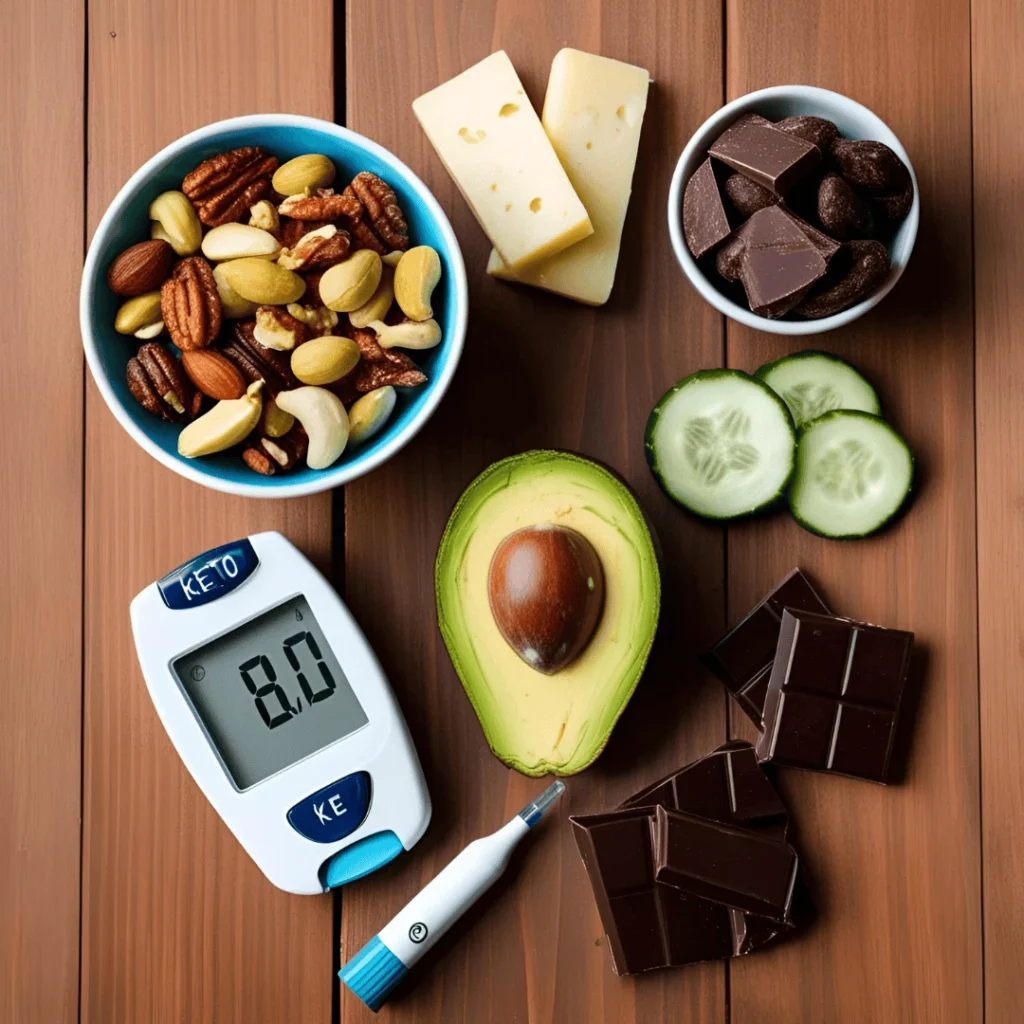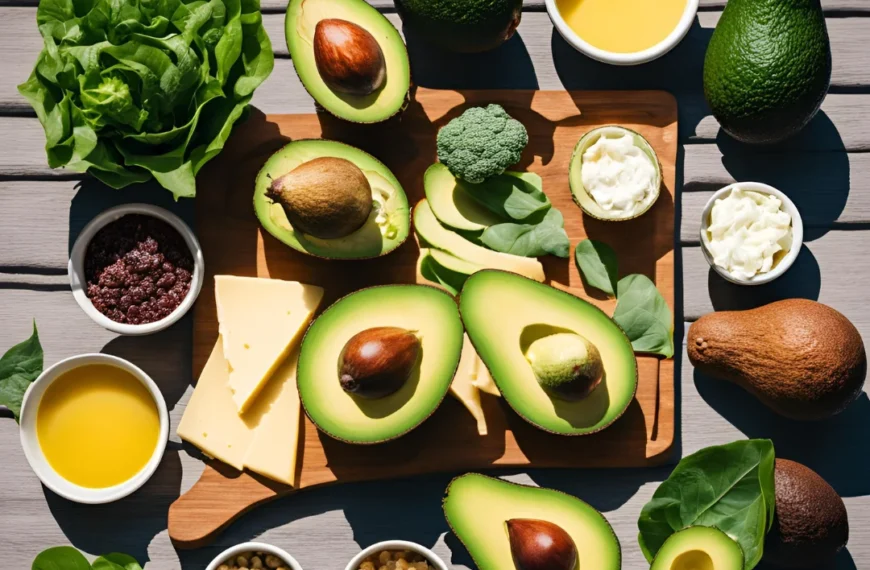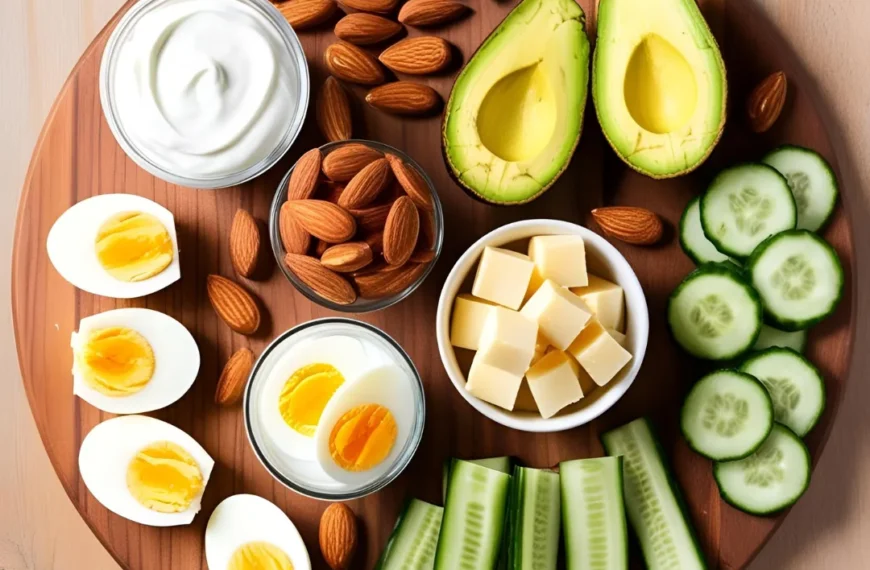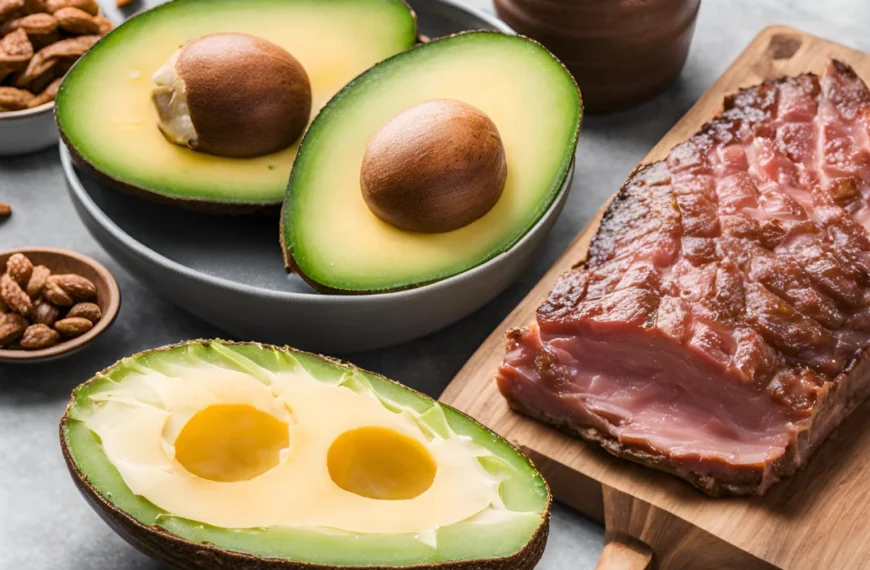Table of Contents
ToggleSummary
The Mediterranean Diet is a heart-healthy, nutrient-dense eating plan inspired by the traditional eating habits of people from the Mediterranean region. Emphasizing whole grains, lean proteins like fish and legumes, healthy fats from olive oil and nuts, and plenty of fruits and vegetables, this diet helps promote weight loss, boost heart health, and reduce the risk of chronic diseases. The diet is also rich in herbs and spices like basil, oregano, and garlic, adding both flavor and anti-inflammatory benefits to meals. It limits the intake of processed foods, refined sugars, and red meat, focusing on whole, fresh ingredients.
A well-rounded Mediterranean Diet meal plan can help achieve optimal health by prioritizing nutrient-dense foods that support digestion, heart health, and overall wellness. With the inclusion of foods like quinoa, avocados, and Greek yogurt, this diet encourages sustainable, long-term weight management. By following this plan, individuals can enjoy balanced meals that are not only delicious but also promote longevity. The Mediterranean Diet is an effective choice for those looking to improve their health, reduce inflammation, and manage their weight effectively. For more information on how to incorporate this diet into your lifestyle.
Introduction
The Mediterranean Diet Meal Plan is one of the most celebrated approaches to healthy eating, widely praised for its ability to improve heart health, aid in weight loss, and promote overall well-being. Originating from the Mediterranean region, particularly from countries like Greece, Italy, and Spain, this diet focuses on fresh, nutrient-dense foods that offer a variety of health benefits. The Mediterranean diet emphasizes a balance of healthy fats, whole grains, fruits, vegetables, and lean proteins, making it both a heart-healthy and weight-loss-friendly eating plan.
Adopting a Mediterranean Diet Meal Plan doesn’t just involve following a list of foods; it is about embracing a lifestyle that prioritizes fresh, whole foods, moderate portions, and balanced eating. It’s a sustainable approach to eating, offering long-term benefits such as improved cholesterol levels, better blood sugar regulation, and a reduced risk of chronic diseases.
What is the Mediterranean Diet?
The Mediterranean Diet is a balanced eating plan inspired by the traditional habits of people in the Mediterranean region. Known for promoting heart health, longevity, and weight management, this diet emphasizes plant-based foods, healthy fats, and lean proteins.
Key components of the Mediterranean Diet include:
- Fruits and Vegetables: Rich in antioxidants and fiber, these foods support digestion and immune function.
- Whole Grains: Foods like quinoa, oats, and brown rice provide fiber and stabilize blood sugar.
- Healthy Fats: Olive oil, nuts, and seeds promote heart health and weight loss.
- Lean Proteins: Fish, poultry, beans, and legumes are staples, supporting muscle health and reducing inflammation.
- Herbs and Spices: Fresh herbs like basil, oregano, and garlic add flavor and nutritional benefits.
- Dairy (Moderation): Low-fat dairy, such as Greek yogurt, offers probiotics and calcium.
This diet helps with weight management, reduces the risk of chronic diseases, and promotes overall well-being.
For more information, visit Wise Diets.
Stay Updated with Wise Diets
Subscribe to the Wise Diets newsletter for the latest health tips, meal plans, and wellness updates straight to your inbox!
Foods to Avoid on the Mediterranean Diet
The Mediterranean Diet focuses on whole, nutrient-dense foods while avoiding:
- Processed Foods and Refined Sugars: These contribute to weight gain and chronic diseases.
- Red Meat and Saturated Fats: Limited intake of red meats like beef, pork, and processed meats is essential for heart health.
For more health tips, check out Wise Diets.
Mediterranean Diet Meal Plan for a Week
The Mediterranean diet is known for its emphasis on fresh, wholesome, and nutritious foods that promote long-term health benefits, including healthy weight loss. By focusing on plant-based foods, lean proteins, healthy fats, and whole grains, this diet is not only heart-healthy but also helps manage weight and prevent chronic diseases. Below is a detailed 7-day Mediterranean Diet Meal Plan that follows these principles while ensuring variety and balanced nutrition for the entire week.
Day 1: Mediterranean Fresh Start
Breakfast
Greek Yogurt with Honey, Walnuts, and Fresh Berries Start your day with a protein-packed breakfast of creamy Greek yogurt topped with a drizzle of honey, crunchy walnuts, and a mix of antioxidant-rich berries like blueberries, raspberries, or strawberries. This meal provides probiotics from the yogurt, healthy fats from walnuts, and fiber from the berries, which supports digestion and helps keep you full throughout the morning.
Lunch
Mediterranean Chickpea Salad A vibrant chickpea salad made with canned or cooked chickpeas, cherry tomatoes, cucumbers, red onions, and Kalamata olives. Toss with extra virgin olive oil, a squeeze of lemon juice, and a sprinkle of dried oregano. This meal is rich in plant-based protein, fiber, and healthy fats, making it ideal for weight loss and maintaining energy levels.
Dinner
Grilled Salmon with Roasted Vegetables Grilled salmon provides omega-3 fatty acids essential for heart health and weight loss. Serve with roasted vegetables such as zucchini, bell peppers, and tomatoes, drizzled with olive oil and seasoned with salt and pepper. This dinner is a great source of lean protein and healthy fats while keeping carbs low.
Day 2: Nourishing and Energizing
Breakfast
Oatmeal with Almond Butter, Chia Seeds, and Sliced Bananas Oatmeal is a whole grain that keeps you full and supports healthy digestion. Add almond butter for healthy fats, chia seeds for fiber and omega-3s, and banana slices for a touch of natural sweetness. This meal provides sustained energy throughout the morning and helps maintain blood sugar levels.
Lunch
Quinoa and Vegetable Stir-Fry Quinoa is a protein-rich whole grain that pairs perfectly with sautéed vegetables like spinach, bell peppers, and zucchini. Use olive oil for sautéing and season with herbs like thyme and rosemary. This lunch provides a perfect balance of protein, healthy fats, and fiber, aiding in weight loss and muscle maintenance.
Dinner
Grilled Chicken with Mediterranean Couscous Salad Grilled chicken breast is a lean protein that complements the fresh Mediterranean couscous salad. The salad includes cooked couscous, cherry tomatoes, cucumbers, olives, and feta cheese, all tossed in olive oil and lemon dressing. This combination offers a delicious and filling meal while keeping the calorie count in check.
Day 3: Mediterranean Delight
Breakfast
Whole-Grain Toast with Avocado, Tomatoes, and Poached Egg A simple but satisfying breakfast of whole-grain toast topped with smashed avocado, sliced tomatoes, and a poached egg. Avocados provide heart-healthy fats, while tomatoes are rich in antioxidants. The egg provides a high-quality protein source to keep you full until your next meal.
Lunch
Lentil Soup with Spinach Lentils are a great source of plant-based protein and fiber, making them an excellent choice for weight loss and maintaining muscle. Cook lentils with spinach, garlic, onions, and olive oil for a hearty, nourishing soup. This meal is filling, low in calories, and packed with nutrients.
Dinner
Grilled Shrimp with Roasted Sweet Potatoes and Mixed Greens Grilled shrimp provides a lean protein source that’s rich in omega-3s. Pair with roasted sweet potatoes, which are packed with vitamins, and a side of mixed greens like arugula, spinach, and kale. This meal is low in carbs but high in fiber, helping to regulate blood sugar and support weight loss.
Day 4: Fresh and Flavorful Mediterranean Dishes
Breakfast
Chia Pudding with Almond Milk, Berries, and Nuts Prepare chia pudding the night before by mixing chia seeds with almond milk, vanilla extract, and a touch of honey. In the morning, top with fresh berries and chopped almonds for a nutritious breakfast high in omega-3 fatty acids, fiber, and antioxidants.
Lunch
Grilled Chicken Caesar Salad with Greek Yogurt Dressing Make a healthy version of Caesar salad by using grilled chicken breast, romaine lettuce, and a homemade Greek yogurt dressing (Greek yogurt, lemon juice, garlic, and a little olive oil). Skip the croutons and traditional Caesar dressing to keep the meal light and packed with protein and healthy fats.
Dinner
Baked Cod with Roasted Vegetables Baked cod is a lean fish that’s rich in protein and low in fat. Pair it with a side of roasted Mediterranean vegetables like eggplant, zucchini, and bell peppers. Season with olive oil, lemon, and a mix of oregano and thyme to bring out the best flavors of the Mediterranean.
Day 5: Deliciously Light and Healthy
Breakfast
Smoothie Bowl with Spinach, Banana, Greek Yogurt, and Flaxseeds Blend spinach, banana, Greek yogurt, and flaxseeds together to create a nutrient-packed smoothie bowl. Top with fresh fruit, granola, and a drizzle of honey. This bowl is full of antioxidants, fiber, and healthy fats, making it a great option for a light yet filling breakfast.
Lunch
Falafel with Tahini Sauce and Hummus Traditional falafel made from chickpeas is a delicious plant-based meal that’s packed with fiber and protein. Serve with a side of tahini sauce and hummus for added flavor and nutrition. Pair with a small salad of mixed greens, cucumbers, and tomatoes for a refreshing touch.
Dinner
Grilled Lamb with Couscous and Tzatziki Grilled lamb is rich in protein and essential nutrients. Pair it with a side of couscous and top it with fresh tzatziki made from Greek yogurt, cucumber, garlic, and dill. This flavorful dinner is both satisfying and heart-healthy.
Day 6: Mediterranean Comfort Foods
Breakfast
Mediterranean Frittata with Spinach, Feta, and Olives A Mediterranean frittata made with eggs, spinach, feta cheese, and Kalamata olives offers a great start to the day. Eggs provide a complete source of protein, while the spinach and olives offer plenty of vitamins and minerals. This breakfast is high in protein and healthy fats to keep you feeling satisfied.
Lunch
Hummus and Veggie Wrap A whole-grain wrap filled with hummus, cucumbers, tomatoes, bell peppers, and spinach makes for a quick and healthy lunch. Hummus is a great source of plant-based protein, while the fresh vegetables provide fiber and essential vitamins.
Dinner
Grilled Chicken with Roasted Asparagus and Couscous Grilled chicken is a lean source of protein that pairs wonderfully with roasted asparagus and a side of couscous. Asparagus is packed with fiber and antioxidants, making it an ideal choice for supporting digestion and overall health.
Day 7: Mediterranean Flavors to End the Week
Breakfast
Overnight Oats with Almond Butter and Chia Seeds Prepare overnight oats the night before by combining oats, almond butter, chia seeds, and almond milk. Let it sit overnight in the fridge, and enjoy a delicious, nutrient-dense breakfast that’s rich in fiber, healthy fats, and antioxidants.
Lunch
Greek Salad with Grilled Shrimp A classic Greek salad with cucumbers, tomatoes, red onions, Kalamata olives, and feta cheese, topped with grilled shrimp, provides a refreshing and satisfying lunch. Dress with olive oil and lemon juice for added flavor. This meal is rich in healthy fats, protein, and vitamins.
Dinner
Baked Eggplant Parmesan with Zucchini Noodles For a lighter take on a classic Italian dish, try baked eggplant parmesan served with zucchini noodles. The eggplant provides fiber and antioxidants, while the zucchini noodles offer a low-carb alternative to traditional pasta.
This 7-day Mediterranean Diet Meal Plan is packed with nutrient-dense meals that focus on whole, unprocessed foods to promote heart health, weight loss, and overall well-being. By incorporating these meals into your weekly routine, you’ll be able to enjoy the many health benefits of the Mediterranean diet while maintaining a balanced and enjoyable approach to eating.
Stay Updated with Wise Diets
Subscribe to the Wise Diets newsletter for the latest health tips, meal plans, and wellness updates straight to your inbox!
How to Incorporate the Mediterranean Diet into Your Daily Life
Incorporating the Mediterranean Diet Meal Plan into your lifestyle can be simple and enjoyable. Start by swapping out processed foods with whole grains, fresh vegetables, and lean proteins. Consider preparing meals in advance to make the transition easier, and gradually reduce your intake of red meats and sugary snacks.
Conclusion
In conclusion, the Mediterranean Diet is a holistic approach to nutrition that emphasizes wholesome, nutrient-rich foods that contribute to long-term health benefits and effective weight loss. By focusing on fresh fruits, vegetables, whole grains, and healthy fats, this diet not only promotes heart health but also helps reduce the risk of chronic diseases. It’s a sustainable, enjoyable way to eat, offering diverse, flavorful meals that improve overall well-being. Adopting the Mediterranean Diet meal plan can lead to better weight management, enhanced energy, and improved longevity. To get started on your journey to a healthier lifestyle,.
explore more tips and resources on Wise Diets.
FAQs
1. What are the best sources of protein on the Mediterranean Diet?
The best sources of protein in the Mediterranean Diet include lean fish (like salmon and sardines), poultry, legumes, and plant-based proteins such as lentils and chickpeas. These protein sources are not only heart-healthy but also help in muscle building and weight management, making them ideal for a balanced, nutritious diet.
2. Can I eat dairy on the Mediterranean Diet?
Yes, dairy is included in the Mediterranean Diet meal plan, but in moderation. Low-fat or fat-free dairy products like Greek yogurt and cheese provide essential nutrients like calcium and probiotics that support gut health. However, they are consumed in smaller quantities compared to other food groups.
3. How does the Mediterranean Diet benefit heart health?
The Mediterranean Diet is rich in healthy fats such as monounsaturated fats from olive oil and omega-3 fatty acids from fish, both of which contribute to reducing inflammation and improving heart health. Research has shown that the diet can significantly lower the risk of heart disease, high cholesterol, and high blood pressure.
4. Is the Mediterranean Diet good for weight loss?
Yes, the Mediterranean Diet meal plan is highly effective for weight loss. It focuses on nutrient-dense foods like whole grains and lean proteins, which help with portion control and prevent overeating. The inclusion of healthy fats like olive oil and avocados also aids in maintaining a healthy metabolism while promoting fat loss.
5. What foods are included in the Mediterranean Diet Meal Plan?
The Mediterranean Diet meal plan includes a variety of fruits, vegetables, whole grains, lean proteins (like fish, poultry, and legumes), healthy fats (such as olive oil and nuts), and dairy in moderation. These foods are rich in essential nutrients, antioxidants, and healthy fats, promoting heart health and weight loss.












